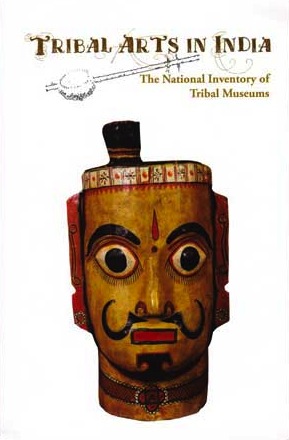Each zone has a zonal headquarters where a zonal cultural center has been established. Several states have membership in multiple zones, but no state subdivisions are utilized in the zonal divisions. In addition to promoting the culture of the zones they are responsible for, each zonal center also works to cross-promote and create exposure to other cultural zones of India by orgazining functions and inviting artistes from other zones.
Source: Cultural Zones of India – Wikipedia, the free encyclopedia
Address : https://en.wikipedia.org/wiki/Cultural_Zones_of_India
Date Visited: Mon Mar 03 2014 17:47:23 GMT+0100 (CET)
Note: the Inter-State Council Secretariat is headed by a Secretary to the Government of India; neither the “North Eastern Council” nor any of the “North Eastern States” listed in the past as members of the North Eastern Council,
i.e. (i) Assam (ii) Arunachal Pradesh (iii) Manipur (iv) Tripura (v) Mizoram (vi) Meghalaya (vii) Nagaland and (viii) Sikkim
are presently mentioned on its official website under “Zonal Councils – Composition” & “Zonal Councils – Genesis” (last updated on 04/08/2016 & 13/02/2020 respectively; accessed 4 May 2021)
http://interstatecouncil.nic.in/composition-2/
http://interstatecouncil.nic.in/genesis/
Regions noted for their wealth of tribal heritage: culture & ecology
Nilgiri Biosphere | Bake Restudy Project (UCLA Digital Library)
Regional Zonal Cultural Centres
Eastern Zonal Cultural Centre, Kolkata
Eastern region – Eastern Zonal Council
North Central Zone Cultural Centre, Prayagraj
Uttar Pradesh
North East Zone Cultural Centre, Dimapur
Seven Sister States & Sikkim – North Eastern Council
North Zone Cultural Centre, Patiala
Northern region – Northern Zonal Council
South Central Zone Cultural Centre, Nagpur
Central region – Central Zonal Council
South Zone Cultural Centre, Thanjavur
Southern region – Southern Zonal Council
West Zone Cultural Centre, Udaipur
Western region – Western Zonal Council
Up-to-date information: Zonal Cultural Centres >>
Find up-to-date information provided by, for and about Indian authors, researchers, officials, and educators
List of web portals covered by the present Custom search engine
Ashoka Trust for Research in Ecology and the Environment (ATREE) – www.atree.org
Freedom United – www.freedomunited.org
Government of India (all websites ending on “.gov.in”)
Kalpavriksh Environmental Action Group – https://kalpavriksh.org
Shodhganga (a reservoir of Indian theses) – https://shodhganga.inflibnet.ac.in
Survival International – www.survivalinternational.org
UCLA Digital Library – https://digital.library.ucla.edu
Unesco – https://en.unesco.org
Unesco digital library – https://unesdoc.unesco.org
Unicef – www.unicef.org
United Nations – www.un.org/en
Video Volunteers – www.videovolunteers.org
WorldCat (“the world’s largest library catalog, helping you find library materials online”) – https://worldcat.org
To search Indian periodicals, magazines, web portals and other sources safely, click here. To find publishing details for Shodhganga’s PhD search results, click here >>
Search tips
Combine the name of any particular state, language or region with that of any tribal (Adivasi) community.
Add keywords of special interest (music, poetry, dance just as health, sacred grove and biodiversity); learn about the rights of Scheduled Tribes such as the “Forest Rights Act” (FRA); and the United Nations “Declaration on the Rights of Indigenous Peoples”, “Universal Declaration of Human Rights”, “women’s rights”, or “children’s right to education”.
Ask a question that includes “tribal” or “Adivasi”, for instance: “Adivasi way of life better?” (or “tribal way of life worse?”)
Specify any particular issue or news item (biodiversity, bonded labour and human trafficking, climate change, ecology, economic development, ethnobotany, ethnomedicine, global warming, hunter-gatherers in a particular region or state, prevention of rural poverty, water access).
For official figures include “scheduled tribe ST” along with a union state or region: e.g. “Chhattisgarh ST community”, “Himalayan tribe”, “Scheduled tribe Tamil Nadu census”, “ST Kerala census”, “Particularly Vulnerable Tribal Group Jharkhand”, “PVTG Rajasthan”, “Adivasi ST Kerala”, “Adibasi ST West Bengal” etc.
In case the Google Custom Search window is not displayed here try the following: (1) toggle between “Reader” and regular viewing; (2) in your browser’s Security settings select “Enable JavaScript” | More tips >>
Note: hyperlinks and quotes are meant for fact-checking and information purposes only | Disclaimer >>

Read or download titles for free (eBooks & Magazine) >>
Tips for using interactive maps
Toggle to normal view (from reader view) should the interactive map not be displayed by your tablet, smartphone or pc browser
For details and hyperlinks click on the rectangular button (left on the map’s header)
Scroll and click on one of the markers for information of special interest
Explore India’s tribal cultural heritage with the help of another interactive map >>